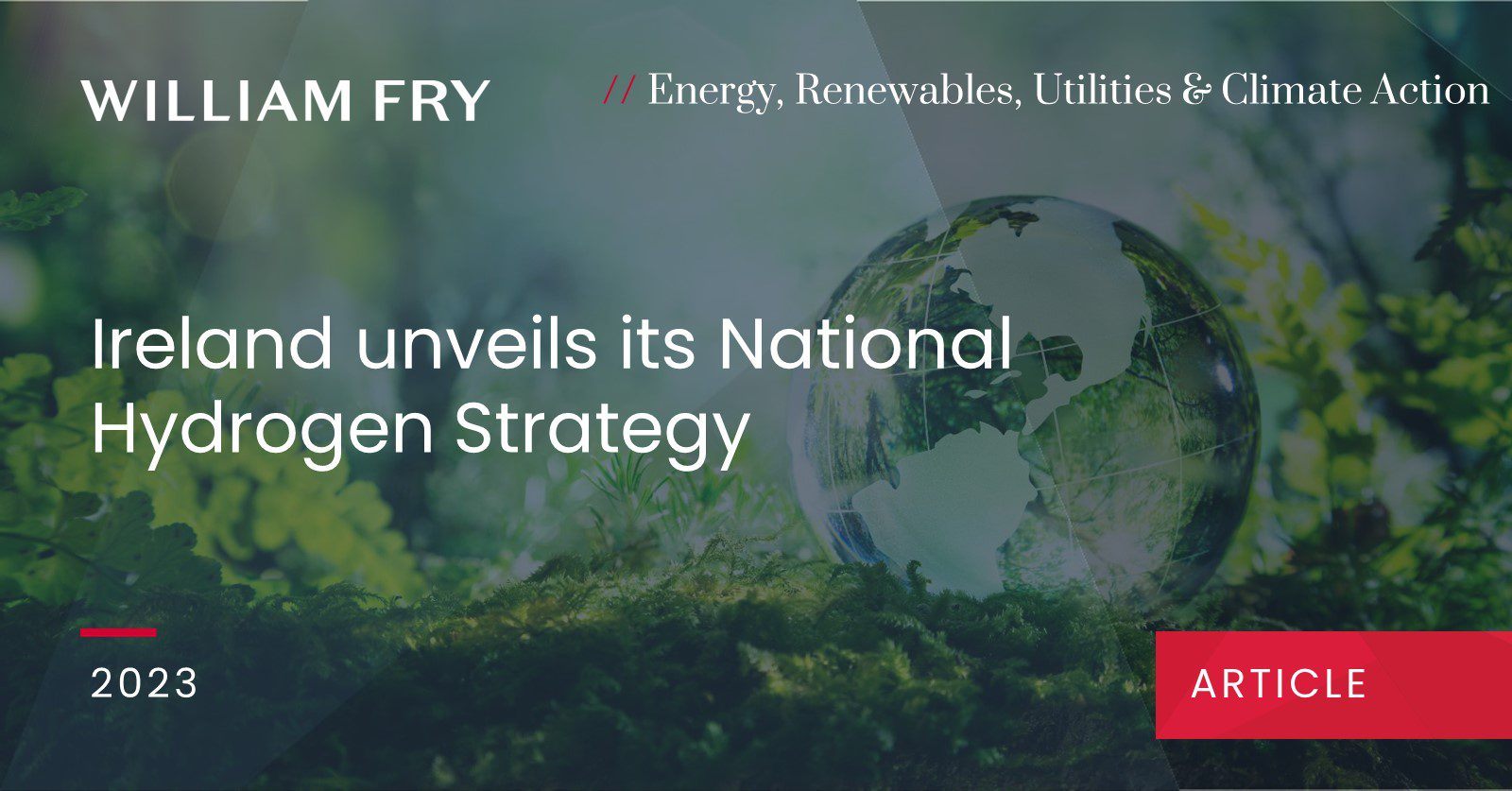The Irish government yesterday published the National Hydrogen Strategy (the Strategy), which is the latest policy document identifying its long-term strategic vision towards decarbonising the economy, enhancing the country’s energy security and creating industrial and market opportunities.
The Strategy envisions Ireland using its vast offshore wind capabilities to produce green hydrogen, not only for domestic use but also for export.
What do you need to know?
Five key areas are addressed:
1. Kickstarting, then scaling up the production of renewable hydrogen
While the initial focus will be on producing green hydrogen from surplus renewable energy that would otherwise be curtailed, this will then move to direct production from offshore wind. By 2030, the Strategy envisages that 2GW of offshore wind will be dedicated to green hydrogen production.
2. Focusing on hard-to-decarbonise sectors
The focus of the Strategy is on the ultimate end users of deployed renewable hydrogen – sectors where direct electrification is not possible or cost-effective. As an energy-dense, zero-emission source of electricity that can be stored for long durations, hydrogen will be particularly effective in decarbonising industrial processes and as a transport fuel in sectors like heavy goods transport, maritime and aviation.
However, given the nascent nature of the domestic and international markets, further work will need to be undertaken to better understand the particular needs of these end-users, and the volumes of green hydrogen required.
3. Understanding the infrastructure needed to support and develop such an energy system
The infrastructure roll out is expected to be focused initially across regional clusters where production, high demand and availability of large-scale storage coincide.
While at first compressed tanks will likely be used, a transition is expected to be made to the use of hydrogen pipelines as the dominant transportation method as production expands. For this, the repurposing of existing natural gas pipeline infrastructure may be favoured, linking the clusters into a national hydrogen network.
The Strategy notes that the State does not see “blue hydrogen”– hydrogen produced from fossil fuel gas with carbon capture and storage (CCS)– as playing a significant role, citing the country’s lack of fossil gas or CCS facilities and incompatibility with long-term climate goals.
4. The need to develop a regulatory regime and safety framework required to scale up in this area
The Strategy recognises the influence of EU law in this area, citing the need to adopt certification schemes in line with EU regulations as to the origin and sustainability of hydrogen, and the EU-wide monitoring of hydrogen leakage and emissions.
As it stands, several gaps in terms of regulation and licensing have been identified across the hydrogen value chain, which requires comprehensive review and rectification.
5. The innovation and skills required to develop the nascent technology
Renewable hydrogen is still a nascent technology. Research and innovation will therefore be vital to informed policymaking, and the scale-up and future competitiveness of green hydrogen. Moreover, the Strategy identifies that more work needs to be done in determining the skills required in order to enhance employment opportunities.
The Strategy includes a development timeline, giving welcome clarity to stakeholders located along the entire hydrogen value chain, providing guidance on how best to develop and scale up over the coming decades.
Further Information
Click here to read the full Strategy document.
See here for our recent article on Ireland’s declaration on green hydrogen development co-operation with Germany.
Contact Us
For more information or advice on infrastructure, renewables and energy contracts, including developments on green hydrogen, please contact Cassandra Byrne, Jarleth Heneghan, Fergus Devine, Máire O’Neill or your usual William Fry contact




